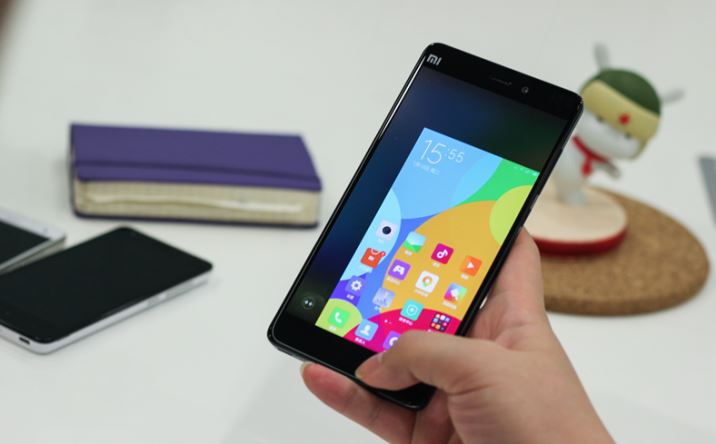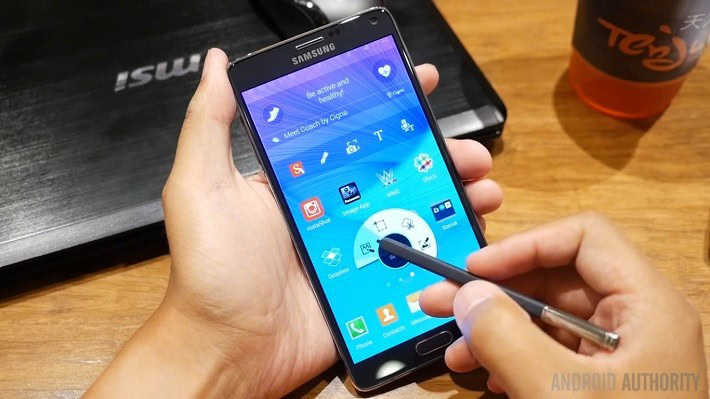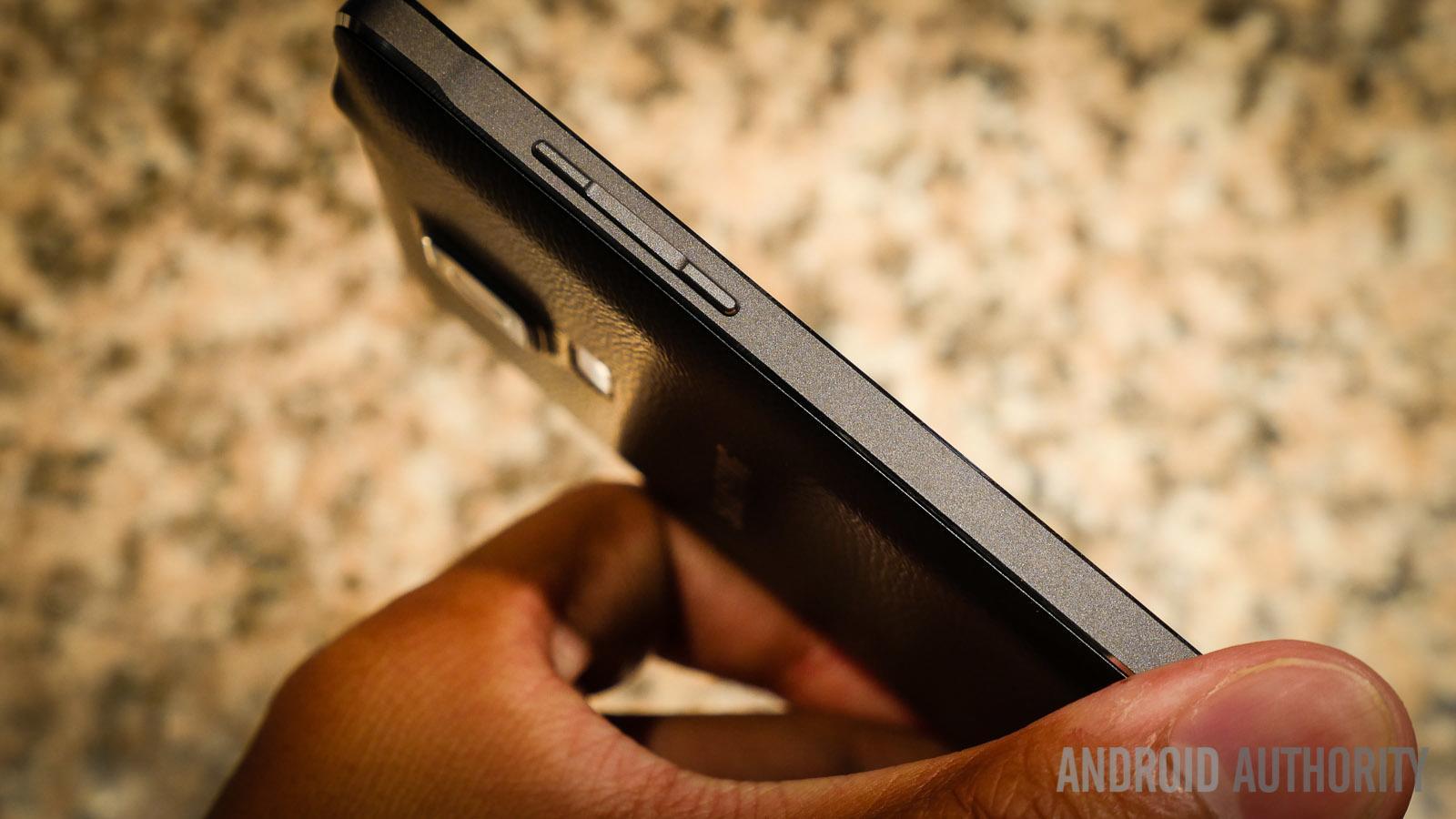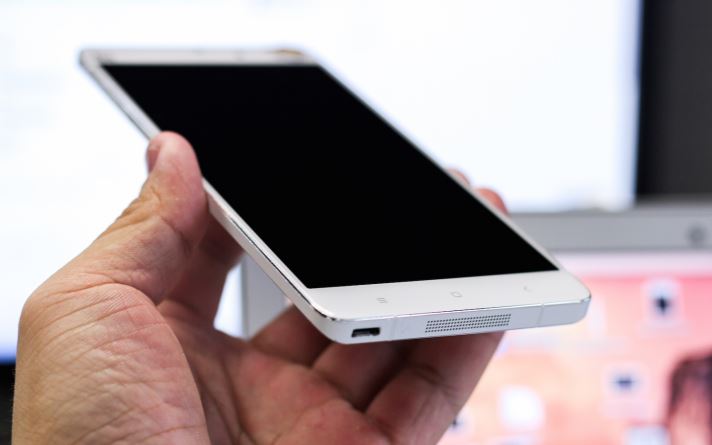Affiliate links on Android Authority may earn us a commission. Learn more.
Mi Note Pro vs Note 4: specs comparison

Xiaomi’s newly announced Mi Note series is a little more expensive than what we would usually expect from the low-cost Chinese smartphone company. The hardware specifications, price tag and even the name, suggests that Xiaomi is targeting some of the industry’s more premium brands this time around. So let’s see if Xiaomi’s Mi Note Pro is really worthy of the name, by sticking it up against Samsung’s mighty Galaxy Note 4 in a head-to-head spec battle.
| Mi Note | Mi Note Pro | Galaxy Note 4 | |
|---|---|---|---|
Display | Mi Note 5.7-inch FullHD LCD | Mi Note Pro 5.7-inch QHD LCD | Galaxy Note 4 5.7-inch QHD AMOLED |
SoC | Mi Note Snapdragon 801 | Mi Note Pro Snapdragon 810 | Galaxy Note 4 Snapdragon 805 / Exynos 5433 |
CPU | Mi Note 4x Krait 400 | Mi Note Pro 4x Cortex-A57 + 4x Cortex-A53 | Galaxy Note 4 4x Krait 450 / 4x Cortex-A57 + 4x Cortex-A53 |
GPU | Mi Note Adreno 330 | Mi Note Pro Adreno 430 | Galaxy Note 4 Adreno 420 / Mali-T760 |
RAM | Mi Note 3GB | Mi Note Pro 4GB | Galaxy Note 4 3GB |
Storage | Mi Note 16GB / 64GB | Mi Note Pro 64GB | Galaxy Note 4 32GB |
MicroSD? | Mi Note No | Mi Note Pro No | Galaxy Note 4 Yes |
Dual-SIM? | Mi Note Yes | Mi Note Pro Yes | Galaxy Note 4 No |
Fingerprint? | Mi Note No | Mi Note Pro No | Galaxy Note 4 Yes |
Camera | Mi Note 13MP back / 4MP front | Mi Note Pro 13MP back / 4MP front | Galaxy Note 4 16MP back / 3.7MP front |
OIS? | Mi Note Yes | Mi Note Pro Yes | Galaxy Note 4 Yes |
Battery | Mi Note 3000mAh | Mi Note Pro 3000mAh | Galaxy Note 4 3220mAh |
Price | Mi Note 2299 yuan ($370) | Mi Note Pro 3299 yuan ($530) | Galaxy Note 4 ~$700 |
Starting with displays, both premium handsets come with a 5.7-inch QHD panel, offering a super sharp pixel density of 515 PPI. The only small difference here is between Samsung’s in-house AMOLED technology verses Sharp/JDI’s LCD technology. As we’ve covered before, the Note 4’s AMOLED panel has previously edged out its competitors in terms of color accuracy, but we doubt that there’ll be any glaring issues with Xiaomi’s choice of display.
Now let’s take a look at the brains behind each of these flagships. The cheaper Mi Note features a slightly older Snapdragon 801. Although its GPU isn’t as capable as the Note 4’s, the lower 1080p display resolution should result in roughly comparable performance for gaming. The Mi Note Pro is a clear winner in the raw performance category though, as the latest Snapdragon 810 packs in at least equivalent CPU power to the Note 4, backed by a new high-end Adreno 430 GPU, which is apparently 30 percent faster than the Galaxy Note 4’s Adreno 420 or equivalent ARM Mali-T760. This is an especially important point for gamers to consider, as you’ll want the Mi Pro’s extra horsepower to pump out a smooth frame rate at this higher QHD resolution.
3GB vs 4GB of RAM is unlikely to make any noticeable difference in general performance terms, but very heavy multi-taskers may find that it’s slightly faster to go back and forth between apps on the Mi Note Pro. CPU performance between the octa-core Snapdragon 810 and the equally well specced Exynos 5433 will be a very close call, and even the quad-core Snapdragon 805 and 801 hold up rather well. However, the Snapdragon 810 has 64-bit support for Android Lollipop and future 64-bit apps, while the Note 4 does not. For more information, check out our breakdown of the Snapdragon 810 vs Snapdragon 805.
Only minor differences so far, but the Mi Note Pro perhaps manages to edge itself out in front for featuring the very latest hardware. Even so, we’re going to require a closer at the handsets’ additional features in order to pull them apart.

Network wise, Xiaomi has opted for dual-SIM compatibility, which is a particularly sought-after feature in Asian markets, while the Galaxy Note 4 only offers single SIM use. The Mi Note Pro also features Cat. 9 LTE speeds for up to 450Mbps downloads on a compatible network, a tad faster than the Galaxy Note 4’s Cat. 6 peak of 300Mbps. As for storage options, the 64GB Mi Note Pro comes with more room as standard, but the Galaxy Note 4 accepts microSD cards for an extra 128GB of space, offering up a potential 160GB of total memory, albeit at additional cost.
The Galaxy Note 4 features a rather excellent 16MP OIS camera. While Xiaomi’s 13MP OIS snapper should provide clear high-res images, it’s impossible to judge important factors, such as low light performance, without spending some hands on time with the two. However, we do know that the Galaxy Note 4 can record 30fps QHD video, while the Mi Note Pro is locked to a still acceptable 1080p resolution. Oh, and the two phones feature a roughly similar battery sizes as well.
One thing that we haven’t included on the spec sheet is build quality. Again, it’s hard to judge without holding the device in hand, but both feature a premium looking sturdy metal frame exposed around the handsets’ edge. The Mi Note opts for a glass back cover, while the Note 4’s faux leather may give it a little extra grip.


Choosing the best of the two will boil down to whether or not Samsung’s extra software, S-Pen, fingerprint and heart-rate scanners are worth an extra $130 or so to you over the cost of Xiaomi’s handset. The Galaxy Note 4 throws virtually the best of everything into the handset, while Xiaomi’s offering packs in the latest and greatest high-end essentials, rather than the full works.
Priced at 3299 yuan ($530) compared with the Note 4’s retail price of around $700, the Xiaomi Mi Note Pro offers some seriously competitive hardware at a price that substantial undercuts the competition. However, the even more reasonably priced 2299 yuan ($370) standard Mi Note model may provide the best value for money for those looking for a powerful, no frills phablet.
Do you think Xiaomi’s Mi Note Pro is a worthy competitor to the Galaxy Note 4, or is Samsung’s handset still the king of flagships?